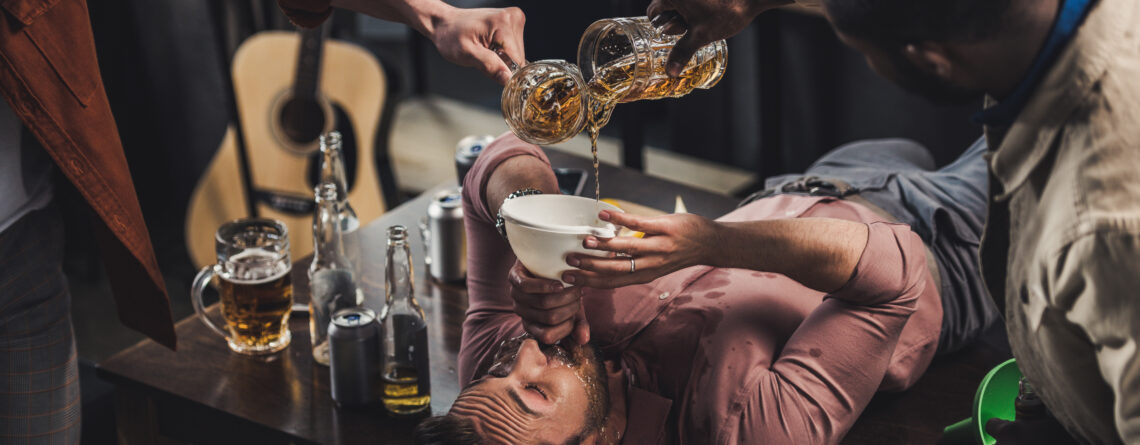The Dangers of Binge Drinking and High-Intensity Drinking
Experts have repeatedly sounded the alarm about binge drinking, typically defined as consuming four or five alcoholic beverages within two hours. However, researchers are increasingly shedding light on high-intensity drinking – an even more dangerous pattern of alcohol use that involves consuming eight or more drinks in a row for women and ten or more drinks in a row for men.
While media stereotypes surrounding binge drinking and high-intensity drinking make it appear that only young people engage in these habits, statistics show nearly one in eight people between ages 27 and 28 regularly consumes ten or more drinks nightly. This behavior leads to severe consequences such as blackouts, alcohol poisoning, and alcohol use disorder.
What Causes High-Intensity Drinking?
Several factors contribute to excessive alcohol use. One leading factor is the widespread social acceptance of alcohol to self-medicate stress, anxiety, and depression. You may use alcohol to numb emotional pain or temporarily blow off steam. However, this often leads to a dangerous cycle of dependency and increased alcohol consumption.
Due to the cultural beliefs surrounding alcohol, many people view drinking as the best way to relax, have fun, and socialize. This deeply ingrained belief can lead people to develop an overreliance on alcohol to feel more confident and outgoing in social settings. As a result, the line between moderate drinking and excessive consumption can quickly blur – especially in people who are genetically predisposed to substance abuse disorders.
The Problems with Binge Drinking and High-Intensity Drinking
The consequences of routinely drinking to excess are potentially severe and far-reaching.
Frequent Blackouts
Short-term memory loss due to heavy alcohol use can lead to risky behaviors and accidents. Blackouts occur when intoxication impairs your brain’s ability to transfer information from short-term to long-term memory. Unlike passing out, which causes a loss of consciousness, people in a blackout state remain awake and often appear sober enough to do typical activities. However, they generally have little or no recollection of their actions during this period.
Blackouts can lead to risky behaviors, such as having unprotected sex, getting into physical altercations, or driving under the influence. These actions can have serious consequences, including unwanted pregnancies, sexually transmitted infections, legal issues, and accidents. Additionally, having incomplete memories can be upsetting and cause further anxiety.
Alcohol Poisoning
Alcohol poisoning, sometimes a life-threatening condition, occurs when you drink more than your body can process, leading to a shutdown of critical functions like breathing, heart rate, and temperature regulation. High-intensity drinking causes your blood alcohol concentration to rise rapidly, and your risk of alcohol poisoning dramatically increases when it reaches 0.08% or more.
Without medical attention, someone experiencing alcohol poisoning can experience extreme confusion, vomiting, seizures, slow or irregular breathing, and unconsciousness. In severe cases, this condition can result in coma or death.
Alcohol Use Disorder
Repeated episodes of binge drinking or high-intensity drinking can pave the way to alcohol use disorder, a chronic disease characterized by an inability to control drinking despite adverse effects. Alcohol use disorder starts with building tolerance and gradually ramps up until your brain and body depend on it to function normally. The effects of AUD can touch every aspect of your life, including your health, work, and relationships.
Finding a Healthier Path
The prevalence of alcohol in the media and real-life causes many people to overlook how risky binge drinking and high-intensity drinking can be. Raising awareness is crucial for changing cultural perceptions and reducing the prevalence of these harmful behaviors.
R&A Therapeutic Partners encourages our clients to make safer choices around alcohol use by suggesting healthier coping mechanisms for dealing with challenges like depression and anxiety. Our services include expert mental health and substance use evaluations, intervention services, and customized outpatient programs to help your family deal with the complexities of alcohol problems and mental health challenges. Contact us today to request help and learn about our holistic approach to recovery and wellness.
At R&A Therapeutic Partners Raymond Estefania and Ana Moreno specialize in substance use and mental health disorder evaluations, treatment, intervention and therapeutic/educational consulting for clients throughout the greater South Florida area, as well as nationally and internationally. For more resources and information please visit Therapeutic-Partners.com or on Facebook.

